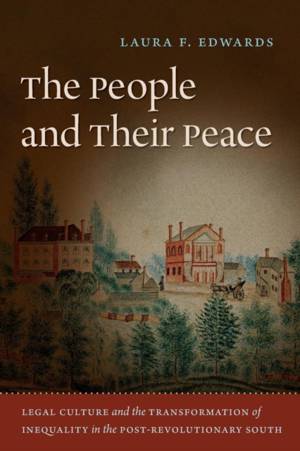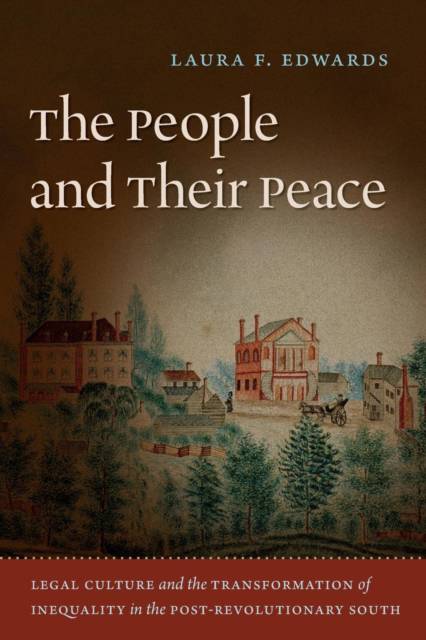
- Retrait gratuit dans votre magasin Club
- 7.000.000 titres dans notre catalogue
- Payer en toute sécurité
- Toujours un magasin près de chez vous
- Retrait gratuit dans votre magasin Club
- 7.000.0000 titres dans notre catalogue
- Payer en toute sécurité
- Toujours un magasin près de chez vous
The People and Their Peace
Legal Culture and the Transformation of Inequality in the Post-Revolutionary South
Laura F Edwards
Livre broché | Anglais
64,95 €
+ 129 points
Description
In the half-century following the Revolutionary War, the logic of inequality underwent a profound transformation within the southern legal system. Drawing on extensive archival research in North and South Carolina, Laura F. Edwards illuminates those changes by revealing the importance of localized legal practice.
Edwards shows that following the Revolution, the intensely local legal system favored maintaining the "peace," a concept intended to protect the social order and its patriarchal hierarchies. Ordinary people, rather than legal professionals and political leaders, were central to its workings. Those without rights -- even slaves -- had influence within the system because of their positions of subordination, not in spite of them. By the 1830s, however, state leaders had secured support for a more centralized system that excluded people who were not specifically granted individual rights, including women, African Americans, and the poor. Edwards concludes that the emphasis on rights affirmed and restructured existing patriarchal inequalities, giving them new life within state law with implications that affected all Americans.
Placing slaves, free blacks, and white women at the center of the story, The People and Their Peace recasts traditional narratives of legal and political change and sheds light on key issues in U.S. history, including the persistence of inequality -- particularly slavery -- in the face of expanding democracy.
Edwards shows that following the Revolution, the intensely local legal system favored maintaining the "peace," a concept intended to protect the social order and its patriarchal hierarchies. Ordinary people, rather than legal professionals and political leaders, were central to its workings. Those without rights -- even slaves -- had influence within the system because of their positions of subordination, not in spite of them. By the 1830s, however, state leaders had secured support for a more centralized system that excluded people who were not specifically granted individual rights, including women, African Americans, and the poor. Edwards concludes that the emphasis on rights affirmed and restructured existing patriarchal inequalities, giving them new life within state law with implications that affected all Americans.
Placing slaves, free blacks, and white women at the center of the story, The People and Their Peace recasts traditional narratives of legal and political change and sheds light on key issues in U.S. history, including the persistence of inequality -- particularly slavery -- in the face of expanding democracy.
Spécifications
Parties prenantes
- Auteur(s) :
- Editeur:
Contenu
- Nombre de pages :
- 448
- Langue:
- Anglais
Caractéristiques
- EAN:
- 9780807859322
- Date de parution :
- 30-04-09
- Format:
- Livre broché
- Format numérique:
- Trade paperback (VS)
- Dimensions :
- 155 mm x 231 mm
- Poids :
- 657 g

Les avis
Nous publions uniquement les avis qui respectent les conditions requises. Consultez nos conditions pour les avis.






